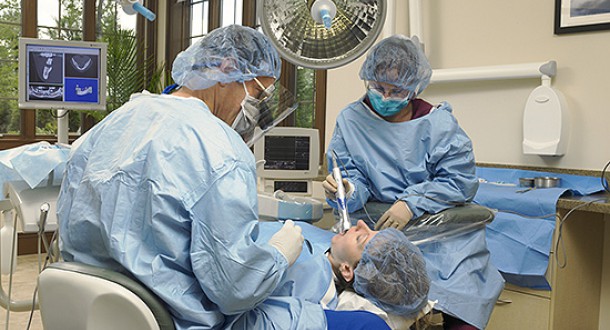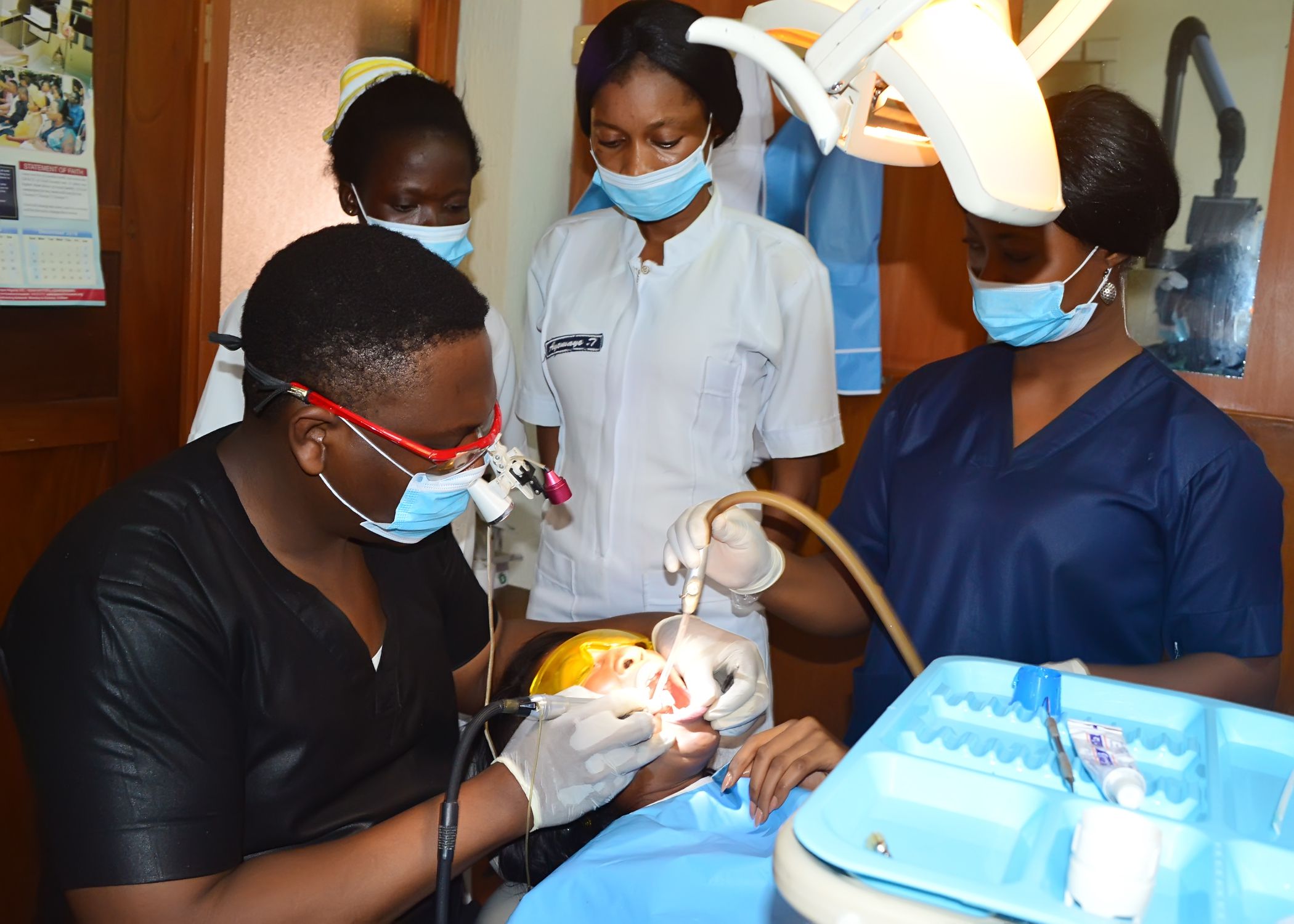Dental implants are replacements for the root part of the dentine structure; they are the basis for tooth replacement in a situation of tooth loss. They are normally available in the form of a metal tool that is drilled in the jawbone of the patient.
Dental implant surgery is actually easy, it’s the preparation for the process that matter. Many panic unnecessarily when they are scheduled for a dental implant surgery, and often go into the surgery filled with fear and premonition of worse things to come. The reality is that most patients experience no pain during the surgery and little discomfort afterwards.
When preparing to go for your first dental implant, the following are the things that take place before the surgery, during it and after the surgery, and they are things you should know.
Before the Surgery

The dentist would need to know your occlusion (bite), where the new replacement teeth will be placed within it, and the exact point in which the dental implants would be placed in the jaw bone to support the teeth, so X-ray examination and frequent CT scanning would be carried out. A surgical precision guide could also be used to determine the bone quantity and quality into which the implants will be inserted.
To make sure you don’t feel anything during the surgery, local anesthesia (the numbing of the area into which the implants would be inserted with small shots) would be administered and the dentist would test the area to make sure it is numb. If you have any anxiety or worries, make sure you inform your dentist of them ahead of time; sedatives or anti-anxiety pre-medication can be administered orally or intravenously to ease your apprehension.

There are several ways in which you can be sedated to reduce your discomfort in surgery: Novocaine, Oral Sedation and IV Anesthesia. Discuss these options with your dentist and determine which one you are best comfortable with.
Depending on your dental health, your dentist might ask you to rinse your mouth with a special anti-bacterial mouthwash, usually containing Chlorhexidine. Antibiotics could also be prescribed to you, as a preventative measure.
Because you will be sedated before the surgery, it is advised that you arrange for someone to take you to and fro the dentist’s office where the surgery will take place. You might not be able to drive yourself because of the side effects of anesthesia.
During the Surgery
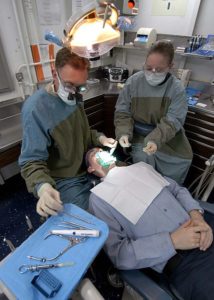
The actual procedure takes about an hour or two, depending on your dental health, the number of teeth to be replaced, which teeth are replaced (molars? premolars? incisors? canines?), and whether there is the need to extract the tooth/teeth before installing the implant. A single tooth implant surgery lasts for typically 1-2 hours.
During the surgery, a procedure known as site preparation or Osteotomy medically is carried out first. Osteo means ‘bone’, while Otomy means ‘to cut or separate’. Small incisions are made into the gum tissue to create small flaps like those on an envelope, in order to access the jaw bone and visualize its shape and location. A small hole is then drilled into the jaw bone.
After that the implant is screwed in place either with a hand tool or the drill used to create the hole initially. After the implant is firmly in place, a second component will be screwed into the implant itself and will remain there until the site of the surgery fully heals.
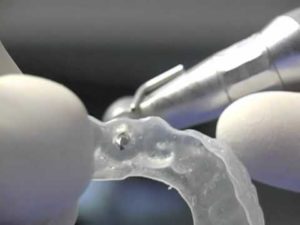
The gums are then closed over the implants, and sutures may be used for this. Sutures (stitches) are of two types; the self-absorbing ones that do not need to be removed after surgery, and those that are not self-absorbing, which have to be removed after about two weeks.
For non-serious cases, the surgical procedure is usually carried out in the dentist’s chair and the procedure is minimally painful. After the surgery, your dentist will give you a list of do’s and don’t’s, and it is important that you follow all the instructions carefully to ensure proper healing of the surgery site and minimal discomfort.

After the surgery, your dentist will give you a date on which you are to come in for the fitting of a dental crown on top of the implant. In case of any swelling or discomfort, the patient should rest as much as possible and the pain would usually go away within 48 hours.
After the surgery
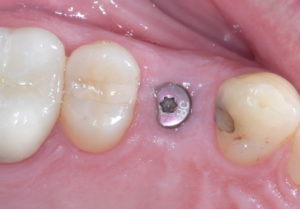
All safety guidelines given by your dentist should be strictly adhered to. Each case is different, so it might be a good idea to ask your dentist what to expect.
Antibiotics may be prescribed to ensure healing. Anti-bacterial mouthwash containing chlorhexidine can also be used to prevent infection in and around the area of the implant. Brushing after the surgery should be done gently to avoid bruising the implant area, and saltwater rinses can be taken as an alternative to the mouthwash.
To ensure faster healing, consume a healthy diet including a lot of fruits and vegetables. The healing should take about two or three months, and within that time, you will visit your dentist from time to time so that your dental crown can be made. The crown is fabricated based on precise working models of your mouth and impressions of your teeth, which will be made during those visits. After the healing is complete and the crown is ready, you will have to go and visit your dentist for the placement of the permanent dental crown on top of the implant.
For that, the implant is re-exposed by making incisions in the gums. This step would be skipped if a separate component was placed in the implant in the first procedure.
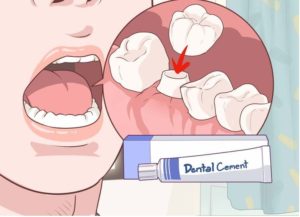
The crown is then placed finally on the implant. For teeth types like the molars, your dentist may want to try in the new crown before placing it permanently on the implant, to ensure it fits your mouth accurately.
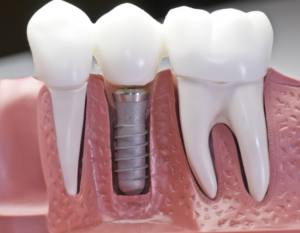
After the whole process, the new tooth (dental crown) must be taken care of like in any other type of surgery. It should be brushed and flossed properly each day, and you should visit your dentist at least once every six months for routine checks, or even more frequently if your dentist says so.

